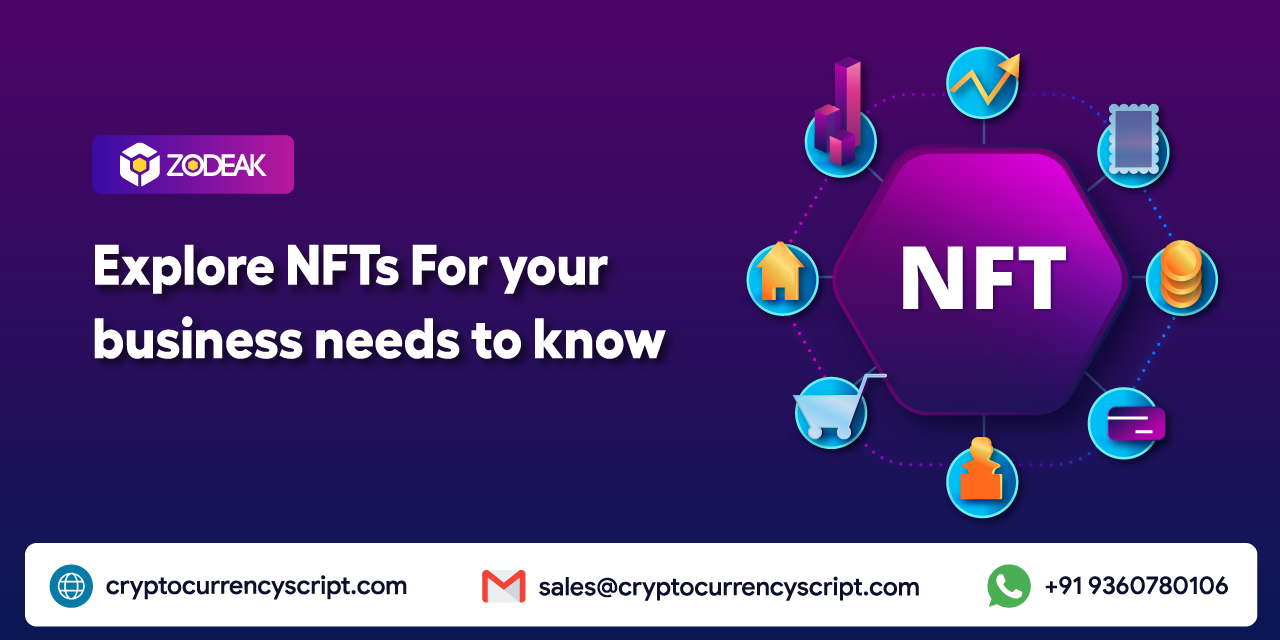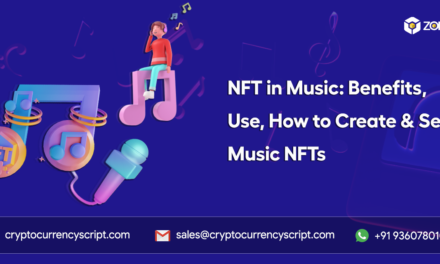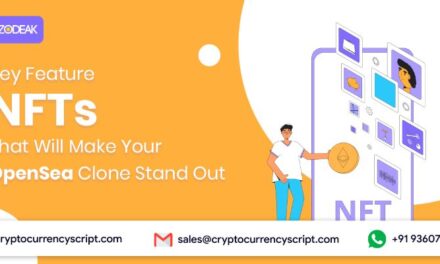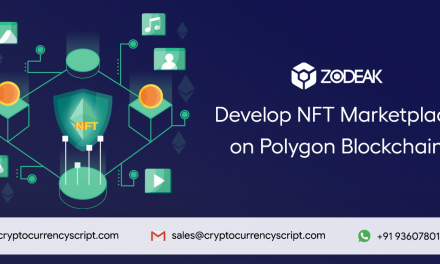In recent days, NFTs have been making waves in the computerized world. From craft to music, real estate to gaming, NFTs changing how we see and trade digital assets. But what precisely are NFTs, and why should businesses pay attention to them?
In this blog we’ll dive into the world of non-fungible tokens, analyzing what they are, how they work, and the possible impact they can have on your business.
What is NFT?
Non-fungible tokens, or NFTs, are distinct digital assets that represent items that exist in the real world, such as artwork, music, films, and in-game goods. Blockchain technology has been used to tokenize these assets. Every NFT has a special identification code that is undetectable and unreplicable. Immutable proof of ownership can be provided by linking metadata to a range of entities. Tokens are held on the blockchain, while assets are stored elsewhere. Tokenizing is the act of more efficiently purchasing, selling, and exchanging these real-world digital assets to lower the likelihood of fraud.
How does NFT work?
- Smart contracts are the core of every NFT, a self-executing codes stay on the blockchain. This smart contract includes information about the asset it represents, including its owner and metadata.
- When an NFT is bought, the asset is transferred to the buyer and the ownership record is updated on the blockchain.
- NFTs are created through a process called minting. The process of minting, which involves encrypting and recording the asset’s data on a blockchain, produces NFTs.
- When tokens are created, they are given a unique identification number that is connected to a single blockchain address.
- Every token has an owner, and the identity of that owner is disclosed to the general public.
The Appeal of NFTs:
#1 Ownership: NFTs enable creators to prove ownership of their digital assets in a way that was not possible in the digital realm. This is vital for artists, musicians, and other creators who can now monetize their assets directly without the need for intermediaries.
#2 Liquidity and Interoperability: NFTs can be bought, and sold on various marketplaces, offering liquidity to digital assets that were previously illiquid. Furthermore, NFTs may be integrated into other platforms and applications due to their interoperability, which opens up a world of creative and innovative use cases.
#3 Royalties and Residual Income: One of the most important aspects of NFTs for creators is the ability to earn royalties on secondary sales. One way to generate passive income with NFTs is to construct smart contracts to give the original inventor a portion of the sale revenues each time the NFT is resold.
Practical application of NFTs in Business?
- Businesses can create and sell digital collectibles and products as NFTs, providing customers with special and exclusive items that can be bought, and sold on various online marketplaces.
- Businesses can use NFTs to create branded content and experiences such as virtual events, concerts, and art exhibitions delivering customers exclusive NFTs as incentives for making purchases or engaging with their brand.
- Companies can utilize NFTs to build rewards programs and loyalty campaigns, rewarding consumers with special NFTs in exchange for their purchases or brand engagement.
How do I get involved in NFT sales?
Several marketplaces offer minting services and peer-to-peer NFT sales.
These include:
- OpenSea – The largest and first NFT marketplace.
- Foundation-
- MakersPlace- A NFT marketplace especially for digital creators.
- Rarible- A market that is run by communities and accepts its own money.
- Waxdigital- An NFT marketplace that offers unique NFTs signed by well-known artists and global brands.
NFTs in businesses: Opportunities and Challenges
NFT offers both challenges and opportunities for businesses. On one hand, NFTs can be used as a marketing tool to acquire customers, build brand loyalty, and drive revenue. To provide customers with rare digital items or experiences, firms can produce limited edition NFTs as part of product launches or marketing campaigns.
On the other hand, businesses want to be aware of possible risks associated with NFTs, including legal and regulatory issues, intellectual property concerns, and environmental importance. Additionally, companies wishing to use NFTs in their operations may encounter difficulties because of the market’s speculative and volatile nature.
Why Are NFTs Becoming Popular?
Although NFTs have been existing since 2015, their popularity is currently rising for several reasons. The first, and most evident, is the normalization and enthusiasm surrounding cryptocurrencies and the underlying blockchain technologies.
Ownership of the content is transferred when a non-fungible token is purchased, but it remains accessible on the Internet. An NFT can become more well-known in this way; its worth increases with the number of web views it receives. Ten percent of the profits from the asset’s sale go to the original author, while the platform receives a smaller portion and the current owner keeps the remaining funds. Popular digital assets could therefore provide a steady stream of income as they are acquired and sold over time.
Conclusion:
To summarise, NFTs are more than simply a passing trend; they represent a fundamental shift in how we perceive, generate, and trade digital assets. NFTs offer businesses a unique opportunity to interact with consumers, generate income, and add value in fresh and creative ways. By grasping the fundamentals of NFTs and investigating their useful applications, companies may put themselves at the forefront of this new technology and grasp new opportunities for growth and success.
If you would like to learn more about NFTs, you must first undertake extensive research. Contact Zodeak, an NFT Marketplace development company, for more insightful options. They can assist you with launching your NFT marketplace or NFT business.





